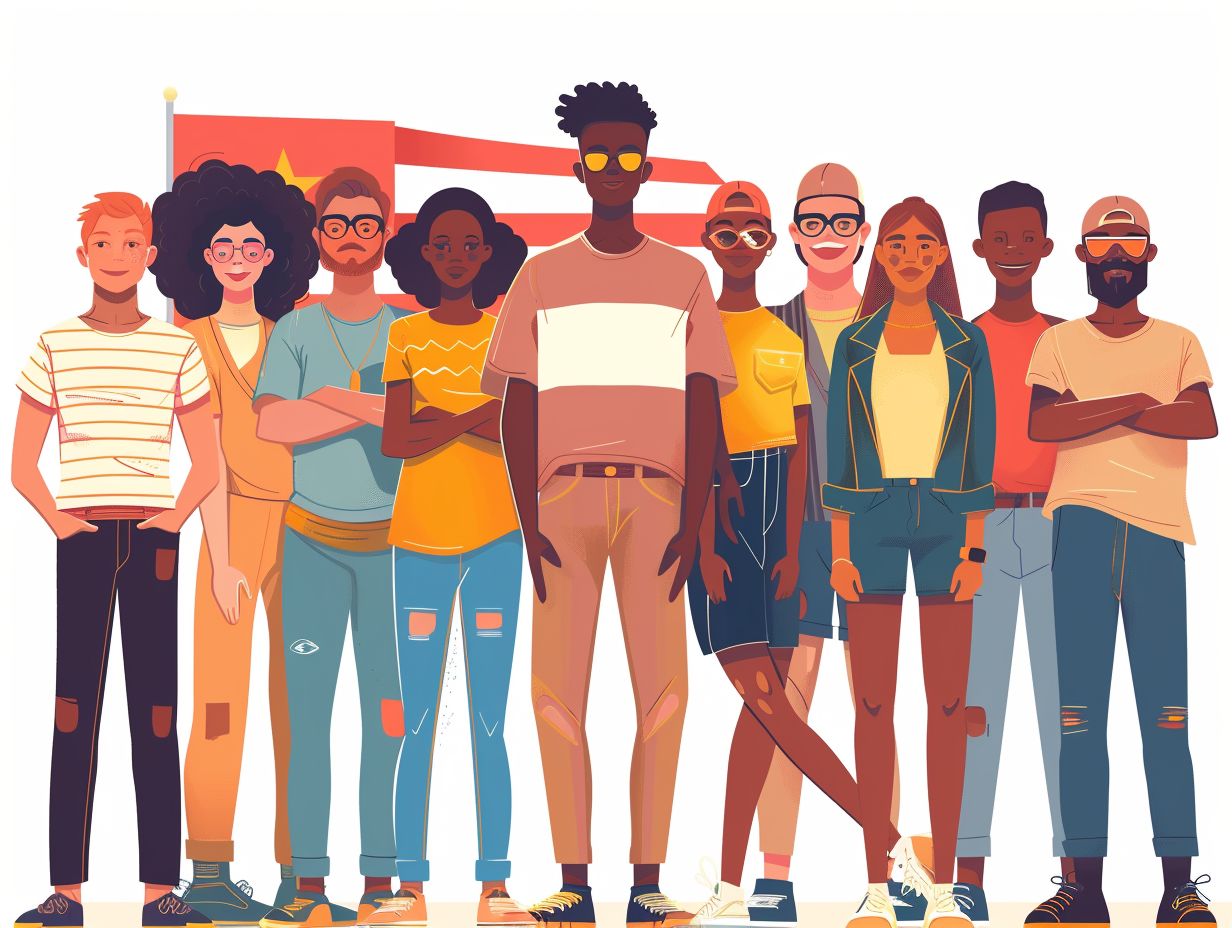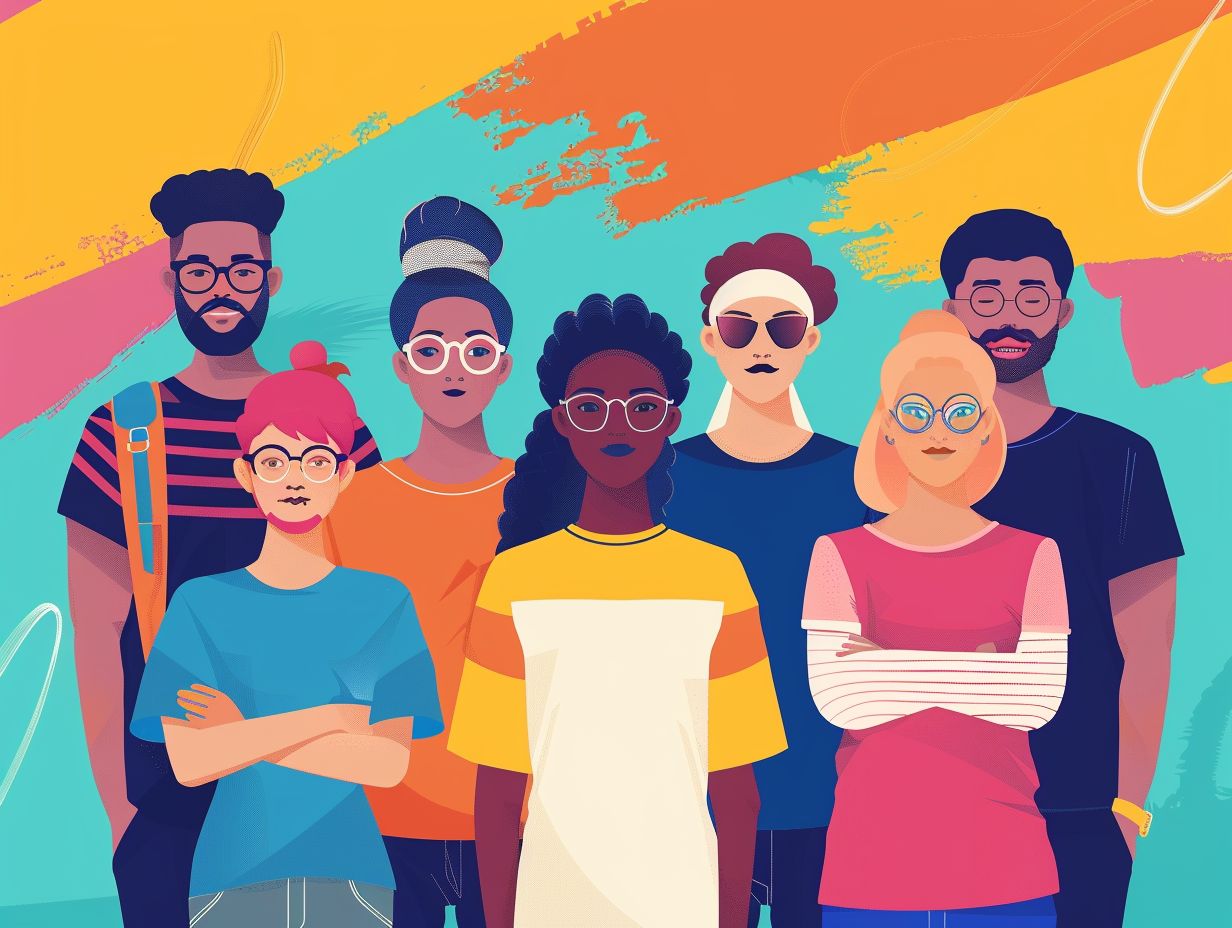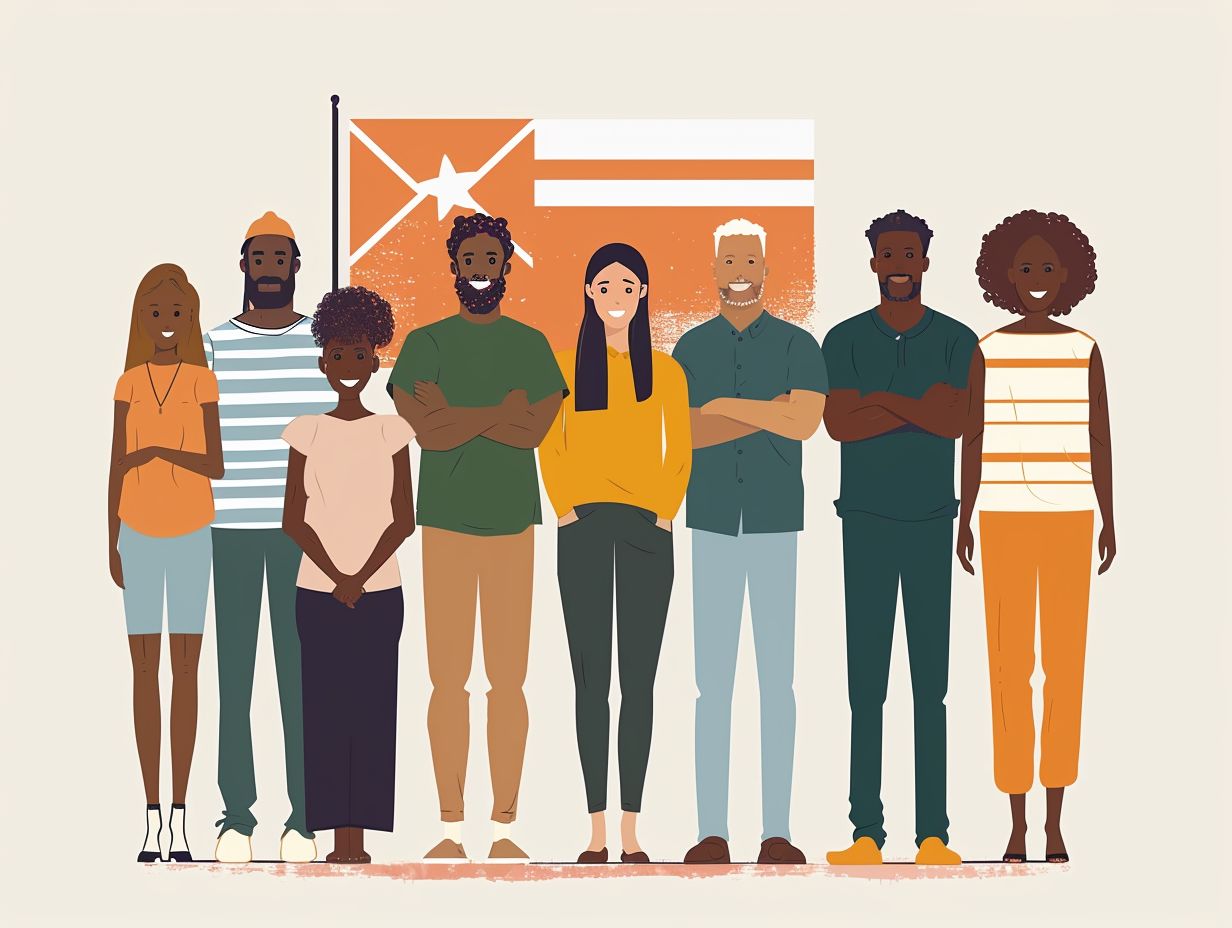Are you an immigrant living in Florida and wondering what rights you have?
From the right to education and healthcare to the right to work and own property, immigrants in Florida have certain protections in place.
Discover steps you can take to protect your rights, including knowing your rights, seeking legal assistance, and reporting violations.
Explore resources available to immigrants in Florida, common challenges they may face, and strategies to overcome them. Let’s dive in!
Key Takeaways:

- Know your rights as an immigrant in Florida, including the right to education, healthcare, work, property ownership, legal representation, and freedom from discrimination.
- Protect your rights by staying informed, keeping documentation handy, seeking legal assistance, reporting violations, and being aware of scams.
- Take advantage of resources such as the Florida Immigrant Coalition, legal aid organizations, community centers, and government agencies to overcome common challenges faced by immigrants in Florida.
What Rights Do Immigrants Have in Florida?
In Florida, immigrants have rights that are protected under the United States Constitution and state laws. These rights include access to education, healthcare, and protection against discrimination. It is important for immigrants to understand these rights in order to navigate their new environment and ensure fair treatment by law enforcement and other entities.
1. Right to Education
In Florida, immigrants have the right to access public education for their children, regardless of their immigration status. This right is based on the Supreme Court case Plyler v. Doe, which established that denying education to undocumented children violates the Equal Protection Clause of the Fourteenth Amendment.
Federal laws such as the Civil Rights Act of 1964 and the Equal Educational Opportunities Act of 1974 also support the access of immigrant children to public education.
In Florida, state laws similarly reinforce this right, ensuring that all children have access to quality education. Organizations like the Florida Immigrant Coalition and the Southern Poverty Law Center advocate for the educational rights of immigrant children, highlighting the positive impact of education on give the power toing families and improving local communities.
2. Right to Health Care
In Florida, immigrants are eligible to receive health care services, specifically emergency medical care, regardless of their immigration status. Under federal law, hospitals that receive Medicare funding must offer emergency medical services to all individuals in need, regardless of their financial situation or immigration status.
Advocacy groups like the National Immigration Law Center and National Association of Community Health Centers support immigrant health rights and strive to guarantee that all individuals, regardless of their backgrounds, can access high-quality healthcare services. Public health departments nationwide endeavor to deliver necessary health services to immigrants, such as vaccinations and disease prevention programs.
3. Right to Work
In Florida, immigrants with the appropriate legal status or work visas have the right to seek employment and work under fair labor conditions.
Various types of work visas are available to immigrants in Florida, including H-1B visas for specialized workers, L visas for intracompany transferees, and TN visas for professionals from Canada and Mexico. It is crucial for immigrant workers to understand their rights and protections under the law, such as minimum wage laws, workplace safety regulations, and anti-discrimination laws.
Local organizations play a vital role in supporting immigrant employment rights by providing resources, legal assistance, and advocacy to ensure fair treatment in the workforce.
4. Right to Own Property
Immigrants in Florida are entitled to own property, following the same regulations and legal procedures that citizens adhere to. These legal obligations guarantee that immigrants can buy real estate in accordance with U.S. laws.
The specific regulations may differ depending on visa status, which can pose obstacles for immigrant property owners. Certain visas restrict property ownership or place constraints on the types of properties that can be bought.
To navigate these intricacies, seeking advice from experienced real estate agents or immigration attorneys is essential. They can offer useful guidance on the optimal practices for immigrant property ownership and assist in avoiding potential legal risks.
5. Right to Legal Representation
Immigrants in Florida are entitled to legal representation in a variety of legal proceedings, including immigration court and criminal cases.
Having legal representation is essential for immigrants as it ensures they have a fair opportunity to present their case and navigate the intricate legal system. This right extends to various situations like deportation defense, asylum applications, and seeking relief from persecution.
Immigrants can access legal aid through organizations such as the Florida Immigrant Coalition, American Immigration Lawyers Association, and Legal Aid Service of Broward County. These organizations provide free or low-cost legal assistance to immigrants, aiding them in understanding their rights and available options under the law.
6. Right to Be Free from Discrimination
Immigrants in Florida benefit from protections against discrimination based on race, ethnicity, nationality, gender, or immigration status.
These legal safeguards are essential for ensuring that individuals receive fair and equitable treatment regardless of their background. The legal framework that supports immigrants in the state includes laws like the Florida Civil Rights Act and the Immigration and Nationality Act.
Advocacy groups such as the ACLU and Southern Poverty Law Center are instrumental in fighting discrimination and offering assistance to individuals experiencing unfair treatment. Through their advocacy for immigrant rights, these organizations help promote a more inclusive and just society for all individuals in Florida.
What Are the Steps to Protect Your Rights as an Immigrant in Florida?
In Florida, ensuring the protection of immigrant rights involves staying informed about legal entitlements, maintaining proper documentation, seeking legal assistance when necessary, and reporting any violations of rights. Organizations such as the ACLU and the Florida Immigrant Coalition offer resources and support to assist immigrants in navigating these procedures.
1. Know Your Rights
It is important for immigrants in Florida to understand their rights to prevent exploitation and unfair treatment by law enforcement and other authorities. Educating oneself about their rights is crucial for navigating various situations, such as encountering discrimination in the workplace, interactions with Immigration and Customs Enforcement (ICE), or dealing with landlords.
Organizations like the ACLU provide helpful resources like ‘Know Your Rights‘ guides and legal support. By staying informed and having a good grasp of their rights, immigrants can give the power to themselves to safeguard their well-being and advocate for equitable treatment.
2. Keep Documentation Handy
It is important for immigrants in Florida to have essential documents such as visas, identification, and any legal paperwork readily available to prove their legal status and access rights.
These documents are crucial evidence of an individual’s immigrant status and rights in Florida, allowing them to navigate legal processes, secure employment, access healthcare, and enroll in educational institutions.
To efficiently organize and protect these vital papers, immigrants should consider creating digital copies stored in secure cloud-based services and maintaining physical copies in a designated folder or binder. It is also recommended to keep a list of emergency contacts and important numbers with these documents for quick reference in case of unforeseen circumstances.
3. Seek Legal Assistance
Obtaining legal assistance from qualified attorneys or legal aid organizations is essential for immigrants in Florida to effectively navigate complex legal situations.
An experienced attorney can help immigrants comprehend their rights, aid with visa applications, and represent them in court if necessary. Seeking legal advice enables immigrants to steer clear of potential pitfalls and ensure proper handling of their legal matters.
To locate a reputable attorney, immigrants can request referrals from friends or community organizations, or conduct online research for reviews. Organizations like the Florida Immigrant Coalition and Legal Aid Service of Broward County offer legal aid services specifically designed for immigrants, furnishing them with the necessary support and resources to address their legal concerns.
4. Report Any Violations of Your Rights
It is essential for immigrants in Florida to report any violations of their rights to organizations such as the ACLU to ensure accountability and receive the necessary support.
When reporting rights violations, individuals can contact the ACLU’s Florida chapter or other local advocacy groups. It is crucial to provide detailed information about the incident, including date, time, location, and individuals involved. This information helps organizations investigate the situation thoroughly and take appropriate action.
Advocacy organizations play a vital role in addressing these violations by offering legal assistance, raising awareness, and advocating for policy changes to protect immigrant rights. By working together with these groups, immigrants can stand up against injustices and strive for a more equitable society.
5. Be Aware of Scams and Fraud
Immigrants in Florida should remain cautious regarding scams and fraud, especially those that target their immigration status or offer counterfeit legal services. It is essential for immigrants to educate themselves about warning signs that may suggest a scam, such as demands for upfront payment, urgency to take immediate action, or assurances of guaranteed outcomes.
Seeking assistance from reputable organizations like the United States Citizenship and Immigration Services (USCIS) or legal aid clinics can assist in verifying the authenticity of services. Keeping up-to-date on current scams through resources like the Federal Trade Commission (FTC) and local immigrant advocacy groups can offer valuable insights to safeguard against fraudulent schemes.
What Are Some Resources for Immigrants in Florida?
Florida provides a range of resources to assist immigrants, such as legal aid organizations, community centers, non-profit organizations, and government agencies that offer services and advocacy. These resources play a crucial role in supporting immigrants to assimilate into their communities and safeguard their rights.
1. Florida Immigrant Coalition
The Florida Immigrant Coalition serves as a notable resource advocating for immigrant rights and offering diverse support services statewide.
Their mission centers on championing immigrant rights through advocacy, education, and community organizing. A prominent program they offer is the Legal Services Network, which provides affordable legal aid to immigrants dealing with intricate immigration procedures. The Coalition conducts workshops and outreach campaigns to educate immigrants on their rights and the resources at their disposal.
Additionally, they work in partnership with local organizations to tackle social and economic obstacles encountered by immigrant communities. Initiatives like the Florida Dignity Campaign are aimed at fostering an inclusive environment for all immigrants in the state.
2. Legal Aid Organizations
Legal aid organizations in Florida have a significant role in providing affordable or free legal assistance to immigrants, aiding them in navigating the complex legal landscape.
These organizations offer a wide range of legal services to immigrants, including help with citizenship applications, deportation defense, asylum claims, and family reunification. Immigrants can access these services through various channels, such as legal clinics, hotlines, and online resources.
Many legal aid organizations collaborate with community centers and immigrant advocacy groups to reach a larger audience and offer support to those in need of legal assistance. By utilizing these available resources, immigrants in Florida can receive the necessary legal help to safeguard their rights and access justice.
3. Community Centers and Non-Profit Organizations
Community centers and non-profit organizations in Florida provide a range of programs and services to assist immigrants, such as educational workshops, social services, and cultural integration activities.
These organizations are essential in aiding newcomers in overcoming the challenges of adjusting to a new country. For example, the Florida Immigrant Coalition delivers legal aid and advocacy to safeguard immigrant rights.
The Hispanic Unity of Florida delivers English language courses and job placement services to assist immigrants in enhancing their skills and securing job prospects. Through the creation of welcoming environments and the promotion of a sense of inclusion, these centers and non-profits contribute to the overall welfare and assimilation of immigrant communities.
4. Government Agencies
Numerous government agencies in Florida offer essential services and information to immigrants, including assistance with legal status, healthcare, and education. These agencies have a vital role in aiding newcomers in navigating the challenges of settling in a new country.
For example, the Florida Department of Children and Families provides support with food assistance programs like SNAP (Supplemental Nutrition Assistance Program). The Florida Department of Health offers access to affordable healthcare services through programs such as Medicaid.
Immigrants can also seek help from local community centers, like the Hispanic Outreach Center, for educational resources such as language classes and job training programs.
What Are Some Common Challenges Faced by Immigrants in Florida?
Immigrants in Florida commonly encounter various challenges such as language barriers, limited access to essential services, fear of deportation, and discrimination. These challenges can greatly affect their integration into new communities and their ability to obtain required resources.
1. Language Barriers
Language barriers can pose challenges for immigrants in Florida when it comes to accessing services, effective communication, and community integration.
The difficulty in comprehending and communicating in the primary language of their new surroundings can lead to frustration and isolation among many immigrants. Various resources exist to assist in overcoming these language obstacles. Immigrants can enhance their communication skills and boost their confidence in handling daily tasks by enrolling in language classes.
Additionally, translation services offered by community organizations and government agencies can provide valuable support in translating important documents and facilitating interactions with service providers. These resources are instrumental in give the power toing immigrants to actively participate and engage within their new community.
2. Lack of Access to Services
Many immigrants in Florida face challenges in accessing essential services such as healthcare, legal aid, and education due to a variety of barriers.
These barriers may include language obstacles, lack of awareness about available resources, apprehension about interacting with government institutions, and financial constraints. There exist resources and community organizations designed to assist immigrants in overcoming these obstacles.
Community organizations are instrumental in closing the gap by offering language support, guidance on navigating the system, and facilitating connections to relevant services. Immigrants have the option to seek assistance from these organizations to access healthcare, secure legal aid, and enroll in educational programs.
3. Fear of Deportation
The concern about deportation is significant for many immigrants in Florida, particularly for those without legal status or with pending immigration cases. This fear can profoundly impact the daily lives and mental well-being of individuals and their families.
The constant worry about deportation can result in heightened levels of stress, anxiety, and depression, affecting relationships and overall quality of life. To address these concerns, it is essential for immigrants to seek legal assistance from reputable organizations and attorneys specializing in immigration law.
These professionals can offer guidance on rights, eligibility for legal status, and help navigate the complex immigration system. Resources such as community centers and nonprofits are available to provide support, education, and advocacy for immigrants experiencing deportation fears.
4. Discrimination and Prejudice
Discrimination and prejudice against immigrants, especially individuals of color, are enduring problems in Florida that can impact their opportunities and quality of life.
Being refused employment or promotions based on their immigrant status, encountering verbal or physical abuse, and facing unequal access to healthcare and education are some forms of discrimination immigrants might face.
This discrimination not only impedes their integration into society but also gives rise to mental health issues.
Different laws like The Florida Civil Rights Act and organizations such as the Florida Immigrant Coalition are dedicated to addressing these injustices and offering assistance to affected individuals.
What Can Immigrants Do to Overcome These Challenges?
Immigrants in Florida have the option to take different steps to address the challenges they encounter. These steps include:
- Learning English
- Building connections with other immigrants
- Seeking assistance from organizations
- Understanding their rights
- Advocating for immigrant rights
1. Learn English
Learning English is one of the most effective ways for immigrants in Florida to overcome language barriers and improve their integration into the community.
By mastering the English language, individuals can enhance their communication skills, open up new career opportunities, and feel more confident in interacting with others. Fortunately, there are various resources available to help individuals in Florida learn English, ranging from formal language classes offered by educational institutions to community programs that provide language support.
These resources not only focus on language proficiency but also aim to help immigrants adapt to the local culture and navigate daily life more effectively. Investing time in learning English can significantly enhance one’s quality of life and overall sense of belonging in a new environment.
2. Connect with Other Immigrants
Forming connections with other immigrants can offer essential support, information, and a feeling of community for individuals adapting to life in Florida.
These connections can foster a sense of belonging and aid newcomers in acclimating to a new setting more smoothly. To locate immigrant communities in Florida, individuals can explore cultural events, become involved in ethnic clubs or organizations, or engage in community outreach programs.
Social media platforms and online forums tailored to specific immigrant groups can serve as valuable tools for networking. Through active participation in these networks, individuals can establish meaningful connections and gain access to crucial resources, guidance, and opportunities within their immigrant community.
3. Seek Support from Organizations
Receiving assistance from organizations dedicated to supporting immigrants can offer crucial resources and advocacy to address a variety of challenges.
These organizations provide a range of services including legal assistance, language interpretation, job training, and counseling. Immigrants interested in accessing these resources can typically contact the organization directly or go through community centers, social service agencies, or immigrant support networks.
Apart from practical help, these organizations frequently organize workshops, support groups, and cultural events to aid newcomers in assimilating into their new community. By engaging with these resources, immigrants can obtain guidance and support to navigate different aspects of their lives in a new country.
4. Know Your Rights and Seek Legal Help
Understanding their rights and seeking legal assistance when necessary is important for immigrants in Florida to protect themselves and address legal challenges effectively.
Immigrants can navigate complex legal issues with confidence by knowing the laws that protect their rights. It is crucial to be aware of available resources for legal aid, such as non-profit organizations like the Florida Immigrant Coalition and Legal Aid Service of Broward County.
These organizations provide valuable support and guidance to immigrants dealing with legal concerns, including immigration status, employment rights, and housing issues. Seeking assistance from these respected sources can significantly impact the prompt resolution of legal matters and ensure fair treatment under the law.
5. Educate Others and Advocate for Immigrant Rights
Educating others about immigrant rights and advocating for them can contribute to a more inclusive and supportive environment for immigrants in Florida. Raising awareness about the difficulties immigrants encounter and emphasizing their positive societal contributions can help individuals build empathy and understanding within their communities.
Immigrants can also actively participate in advocacy by sharing their personal stories, engaging in community events, and communicating with local legislators to express their issues. Organizations such as the ACLU provide assistance and resources for those interested in supporting immigrant rights through campaigns, workshops, and legal aid.
Frequently Asked Questions
What rights do immigrants have in Florida?
Immigrants in Florida have the right to work, access public services, and attend school regardless of their immigration status. They also have the right to be free from discrimination based on their national origin.
How can I protect my right to work as an immigrant in Florida?
In Florida, immigrants have the right to work if they have a valid work permit or are authorized to work by the United States Citizenship and Immigration Services (USCIS). To protect this right, make sure to have all necessary documentation and keep it up to date.
Can I be denied housing because of my immigrant status in Florida?
No, it is illegal for landlords to discriminate against tenants based on their immigration status in Florida. If you feel you have been denied housing because of your status, you can file a complaint with the Florida Commission on Human Relations.
What should I do if I am a victim of discrimination as an immigrant in Florida?
If you believe you have been discriminated against based on your immigration status, you can file a complaint with the U.S. Department of Justice Civil Rights Division or the Florida Commission on Human Relations. You can also contact a local immigrant rights organization for assistance.
How can I protect my right to access public services as an immigrant in Florida?
Immigrants in Florida have the right to access public services such as healthcare and education regardless of their immigration status. If you are denied access to these services, seek assistance from a local organization or file a complaint with the Florida Commission on Human Relations.
Are there any resources available to help me protect my rights as an immigrant in Florida?
Yes, there are several organizations in Florida that offer legal assistance and resources for immigrants, such as the Florida Immigrant Coalition and the Florida Legal Services. You can also contact the USCIS for information on your specific rights and status as an immigrant in Florida.


























Rate this article:
Average rating 0 / 5. Vote count: 0
No votes so far! Be the first to rate this post.
No Comments yet!